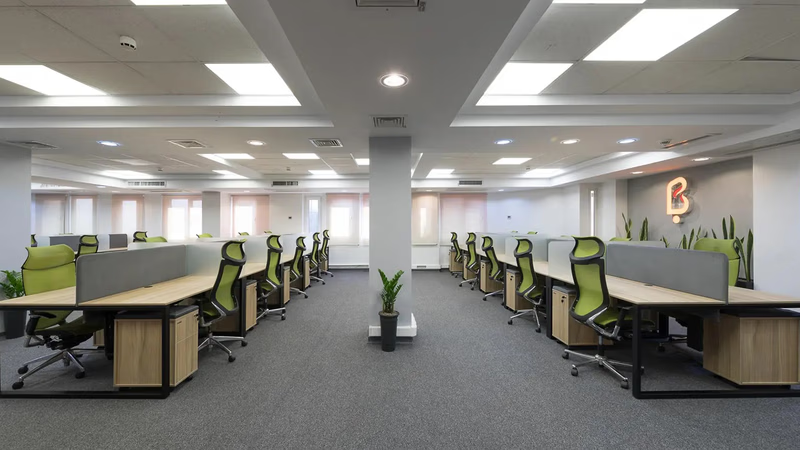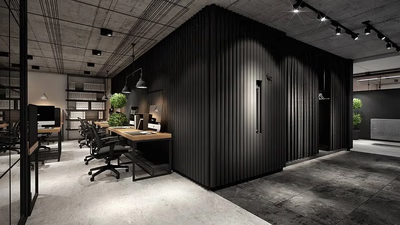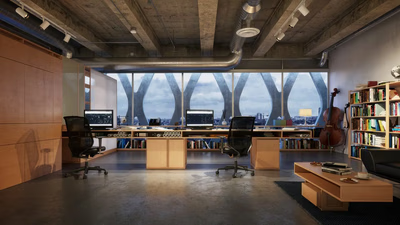
Explore office sales and rentals in the Middle East"s B2B marketplace. "
In the Middle East, many local and international companies operate in this industry and bring their experience and expertise in providing office sales and rental services. Before making any decisions, do a thorough study of local companies and their track record. Reviewing the reviews of previous customers and available information about the company can help you gauge your trust in the company in question. Legal and financial consultation with lawyers or expert advisors can help you choose the right local company. They can give you a better understanding of local laws and regulations and the process of buying and renting office space in the Middle East .
Before signing any contract, carefully read and understand the terms and conditions of the contract. If necessary, you can negotiate with the local company and pay attention to things like price, rental period, services provided and contract terms. If possible, before making a deal, view the office and rental spaces in person to ensure that they match your needs and their quality. In the Middle East and West Asia, some large companies in the field of office sales and rental services are:
- Regus is one of the largest providers of flexible workspace services in the world. They offer fully equipped office spaces in over 1,000 cities worldwide, including the Middle East and West Asia. Regus provides modern facilities, shared workspaces, conference rooms and other services to companies.
- Servcorp is an international company that provides workspace and office space rental services worldwide. They provide advanced administrative facilities, information technology, network connections and support services to companies. Servcorp is also present in the Middle East and West Asia .
- I-Workspace is a reliable company in the field of providing flexible workspaces and related services. They offer office spaces with modern design, advanced equipment and personalized services. I-Workspace operates in the Middle East and West Asia region and has complexes in different cities of this region.
- The Executive Center is one of the largest providers of flexible workspaces and office spaces in Asia. They offer classy designed office spaces, state-of-the-art equipment and personal service in multiple locations in the Middle East and West Asia.
- Servcorp can also be mentioned in this list. They provide well-equipped office spaces and communication services in various regions of the Middle East and West Asia.
In West Asia, several countries are known to be considered attractive destinations for multinational companies and offer better laws for the purchase of offices and activities of multinational companies. These countries are developing and improving their laws and regulations to make them more attractive to multinational companies. However, before making any decisions, it is recommended that you consult with qualified legal and financial advisors to ensure that the terms and conditions are right for your company now and in the future.
The United Arab Emirates, especially Dubai and Abu Dhabi, is a popular destination for multinational companies. These countries simplify the rules and regulations for organizing companies and purchasing offices and provide many capacities for foreign investment. Qatar is another country in the region that is highly attractive for multinational companies. The rules for organizing companies and facilitating the office purchase process will simplify and attract foreign companies to the region.
Kuwait is another country that offers mild and acceptable laws and regulations for foreign companies and investors. This country is attractive for buying offices and establishing current and future multinational companies. Oman is also one of the countries that has provided an open and friendly economy for foreign investment. The rules and regulations for organizing companies and buying offices in Oman are relatively simple and transparent.
-

West Asia"s administrative complexes serve as vital centers for governance, housing government offices and institutions. Notable examples include Qasr Al Watan in Abu Dhabi, which combines political and cultural functions. These complexes reflect the region"s architectural heritage, blending traditional and modern designs. Major cities feature iconic buildings like Burj Khalifa in Dubai, Milad Tower in Tehran, and Dubai International Financial Center, which symbolize business activity and attract large companies. These structures are strategically located near transportation hubs, providing easy access to urban services. They offer advanced facilities suitable for corporate needs, including open spaces, green areas, and modern amenities such as conference halls and fitness centers. The design of these buildings caters to the requirements of large firms by providing attractive work environments and essential services like parking facilities. Each complex is tailored to meet the unique demands of businesses operating within them.
-

The Middle East hosts numerous local and international companies specializing in office sales and rental services. Prospective clients should conduct thorough research on these companies, including reviewing customer feedback and understanding their track records. Legal and financial consultations are advisable to navigate local laws and regulations effectively. Key players in the region include Regus, Servcorp, I-Workspace, and The Executive Center, all of which offer flexible workspace solutions tailored to various business needs. Countries like the United Arab Emirates, Qatar, Kuwait, and Oman are particularly attractive for multinational companies due to their favorable regulations for office purchases and business operations. These nations are continuously improving their legal frameworks to enhance foreign investment opportunities. Before finalizing any agreements, it is crucial to review contract terms carefully and negotiate aspects such as pricing and rental duration. Viewing office spaces in person can also ensure they meet specific requirements.
-

West Asia offers numerous cities ideal for renting and buying offices, each with unique advantages. Key locations include Dubai, known for its dynamic business environment and international finance; Riyadh, the capital of Saudi Arabia, which hosts numerous international companies; and Tehran, a significant commercial hub in Iran. Istanbul serves as a strategic bridge between Asia and Europe, attracting many global organizations. Other notable cities include Tel Aviv, recognized for its technology sector; Beirut, a vibrant financial center; and Doha, the economic heart of Qatar. These cities boast advanced infrastructure, including transportation networks that facilitate international trade. They also provide a friendly business environment with efficient banking services and favorable regulations. The cultural diversity and recreational amenities in these urban centers enhance their appeal to businesses and expatriates alike. Stability in political and security conditions further supports investment opportunities in these regions.
-

Companies and individuals are increasingly seeking to buy or rent office spaces abroad to expand their operations and tap into new markets. Large multinational corporations often pursue this strategy to enhance their local presence, while startups aim to establish a global footprint. A physical office is essential for compliance with local laws and regulations, especially in industries requiring specific permits. This presence fosters direct communication with foreign customers, enhancing trust and credibility. It also facilitates networking opportunities through face-to-face interactions, which are crucial in sectors like healthcare, education, and legal consulting. Moreover, having an office abroad allows companies to manage local operations effectively, improve service quality, reduce costs, and foster local entrepreneurship. The need for a physical presence varies by industry; for instance, manufacturing firms may require direct oversight of production processes. Ultimately, the decision to establish an office in a foreign country hinges on various factors unique to each business or industry.




